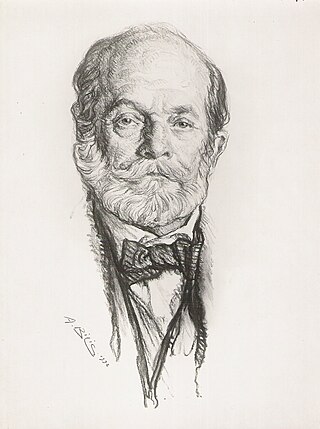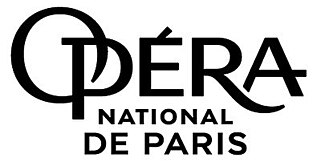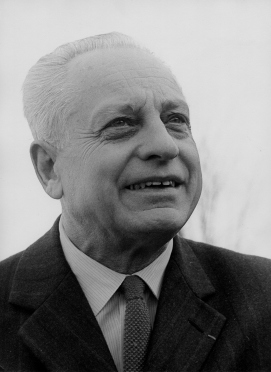Related Research Articles

Antoine Houdar de la Motte was a French author.

Auguste Perret was a French architect and a pioneer of the architectural use of reinforced concrete. His major works include the Théâtre des Champs-Élysées, the first Art Deco building in Paris; the Church of Notre-Dame du Raincy (1922–23); the Mobilier National in Paris (1937); and the French Economic, Social and Environmental Council building in Paris (1937–39). After World War II he designed a group of buildings in the centre of the port city of Le Havre, including St. Joseph's Church, Le Havre, to replace buildings destroyed by bombing during World War II. His reconstruction of the city is now a World Heritage Site for its exceptional urban planning and architecture.

The Conservatoire de Paris, also known as the Paris Conservatory, is a college of music and dance founded in 1795. Officially known as the Conservatoire National Supérieur de Musique et de Danse de Paris (CNSMDP), it is situated in the avenue Jean Jaurès in the 19th arrondissement of Paris, France. The Conservatoire offers instruction in music and dance, drawing on the traditions of the 'French School'.

Simha Arom is a French-Israeli ethnomusicologist who is recognized as a world expert on the music of central Africa, especially that of the Central African Republic. His books include African Polyphony and Polyrhythm: Musical Structure and Methodology (1991) ISBN 0-521-24160-X. He also made some historical field recordings of the Aka Pygmy music.
The grands établissements are French public institutions under ministerial charter within the administrative category referred to as Établissements publics à caractère scientifique, culturel et professionnel (EPCSP).

The Paris Opera is the primary opera and ballet company of France. It was founded in 1669 by Louis XIV as the Académie d'Opéra, and shortly thereafter was placed under the leadership of Jean-Baptiste Lully and officially renamed the Académie Royale de Musique, but continued to be known more simply as the Opéra. Classical ballet as it is known today arose within the Paris Opera as the Paris Opera Ballet and has remained an integral and important part of the company. Currently called the Opéra national de Paris, it mainly produces operas at its modern 2,723-seat theatre Opéra Bastille which opened in 1989, and ballets and some classical operas at the older 1,979-seat Palais Garnier which opened in 1875. Small scale and contemporary works are also staged in the 500-seat Amphitheatre under the Opéra Bastille.

Aurélien Cotentin, better known by his stage name Orelsan, is a French rapper, songwriter, record producer, actor and film director. He has released four studio albums: his debut Perdu d'avance on 16 February 2009, his second album Le chant des sirènes on 26 September 2011, his third album La fête est finie on 20 October 2017 and his fourth album Civilisation on 19 November 2021.

UNESCO Headquarters, or Maison de l'UNESCO, is a building inaugurated on 3 November 1958 at number 7 Place de Fontenoy in Paris, France, to serve as the headquarters for the United Nations Educational, Scientific and Cultural Organization (UNESCO). It is a building that can be visited freely.

André Amellér was a French composer and conductor. He is considered part of the French school of 20th-century classical music.
An Anthology of African Music is a series of recordings of traditional music that was made for the International Music Council by the International Institute for Comparative Music Studies and Documentation (Berlin/Venice) and released on the Musicaphon label by Bärenreiter (Kassel/Basel/London). The series was directed by Paul Collaer. It was part of the larger and longer enduring UNESCO Collection series.
Musical Sources is a series of recordings of traditional music that was made for the International Music Council by the International Institute for Comparative Music Studies and Documentation (Berlin/Venice) and released on the Philips label. Most of these recordings were later reissued on the Auvidis label. The series was directed by Alain Daniélou. It was part of the larger UNESCO Collection series.
Musical Atlas is a series of recordings of traditional music that was made for the International Music Council by the International Institute for Comparative Music Studies and Documentation (Berlin/Venice) and released on the EMI/Odeon label. The series was directed by Alain Daniélou. It was part of the larger UNESCO Collection series. Most of the recordings were later re-issued on the Naive/Auvidis label.
The Studio d'Essai, later Club d'Essai, was founded in 1942 by Pierre Schaeffer, played a role in the activities of the French resistance during World War II, and later became a center of musical activity.

Renaud Capuçon is a French classical violinist. Since late 2016 he has been teaching at the Royal Northern College of Music.

Danièle Pistone is a French musicologist, emeritus professor at the University Paris Sorbonne 4.
Armand Panigel was a French musicologist and film critic. He was also a historical figure of French radio and television in the fields of classical music and cinema.

Gilles Cantagrel is a French musicologist, writer, lecturer and music educator.
Milena Salvini was an Italian-born French exponent and teacher of Indian classical dance. Especially known for her services to Kathakali, in 2019 she was awarded India's fourth highest civilian award, the Padma Shri.

Sebiba is the term used in Algeria to designate a festival and the Tuareg people's dance performed on this occasion and accompanied by female drummers in the Sahara oasis of Djanet in the Tassili n'Ajjer region in southern Algeria. The dance originated among the descendants of black African slaves and is part of the celebrations for the Islamic Ashura Festival. The dance was recognized by UNESCO in 2014 for its significance to humanity's intangible cultural heritage.
Christian Poché was a French ethnomusicologist, music critic, radio producer who specialised in Middle Eastern and African music.
References
- ↑ Duvelle, Charles (2010). Aux sources des musiques du monde Musiques de tradition orale (in French). Francesco Bandarin, Unesco. Paris: Éd. Unesco. pp. 80–82. ISBN 978-92-3-204169-2. OCLC 819200927.
- ↑ Terramorsi, Bernard; Rajaonarison, Elie (2004). "Jaojoby et Samoela : les deux grandes figures de la chanson malgache moderne". Kabaro, revue internationale des Sciences de l'Homme et des Sociétés (in French). II (2–3): 169.